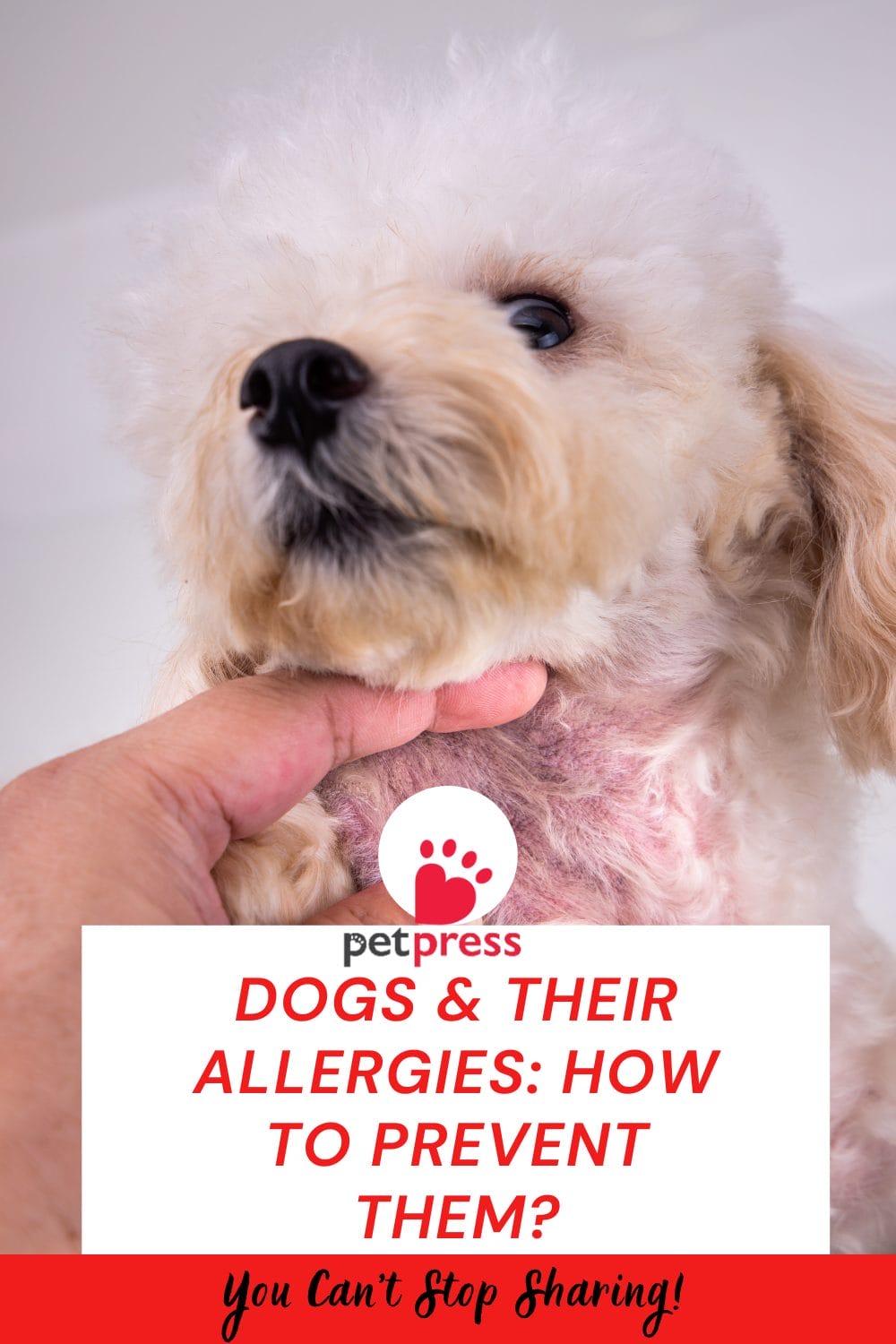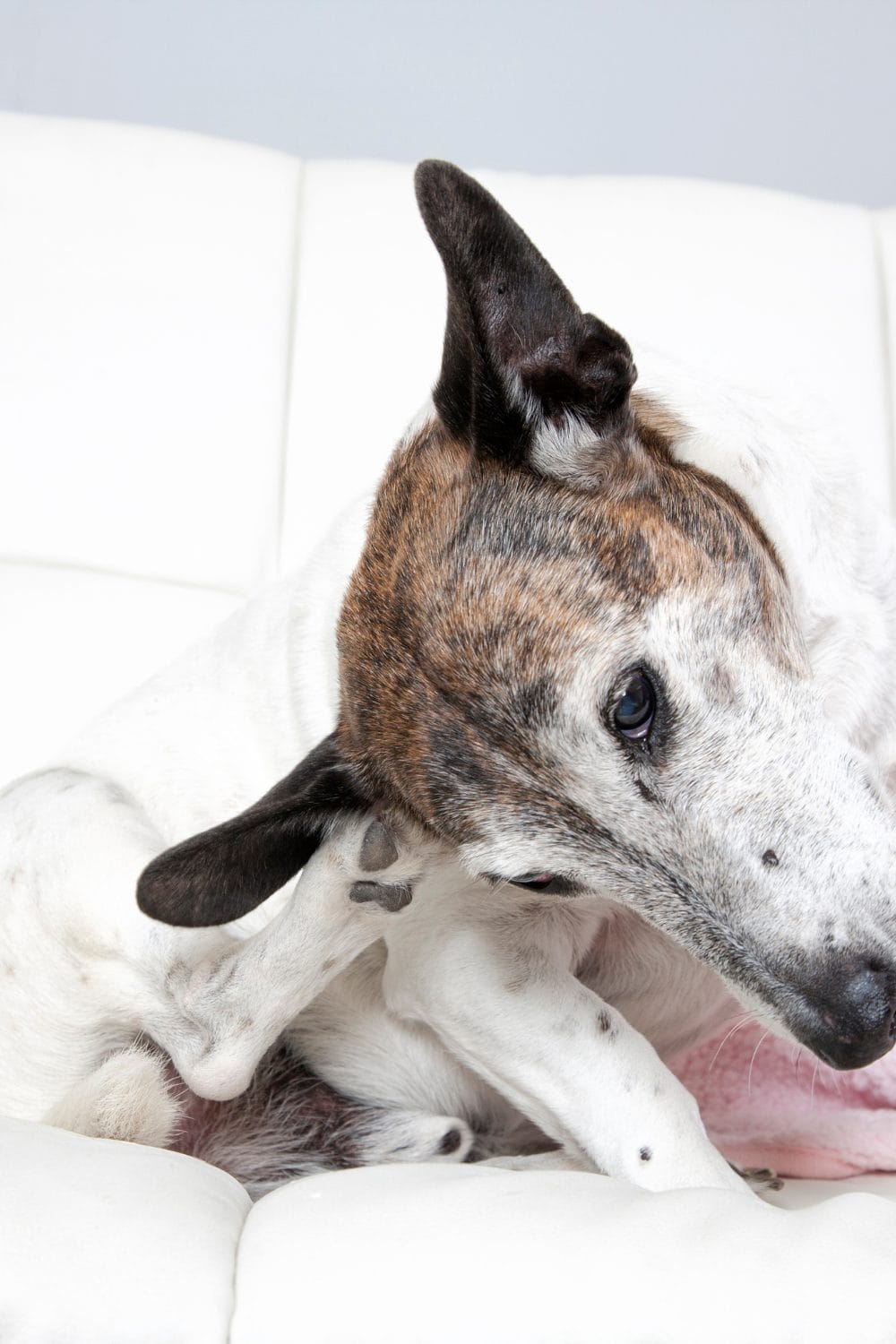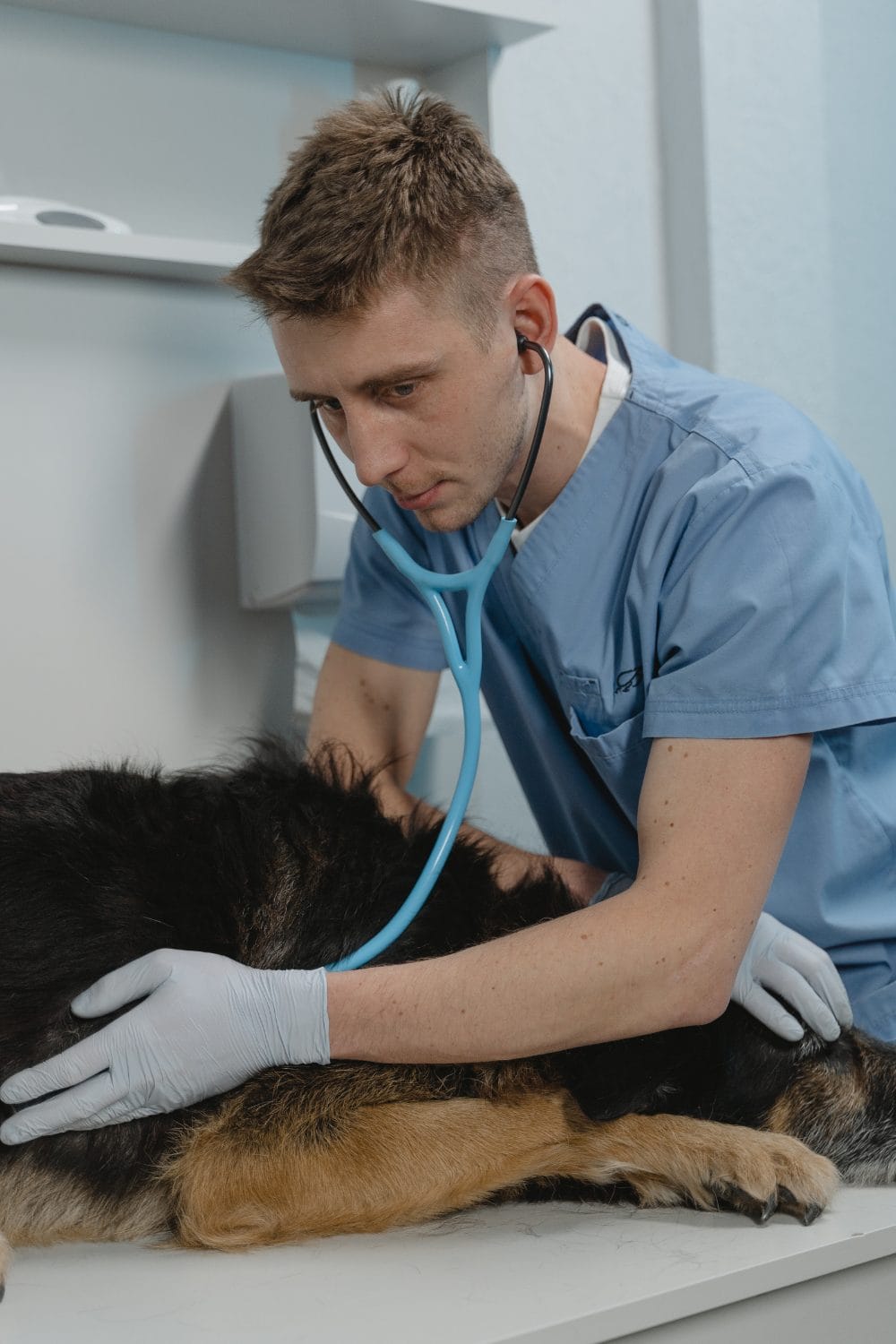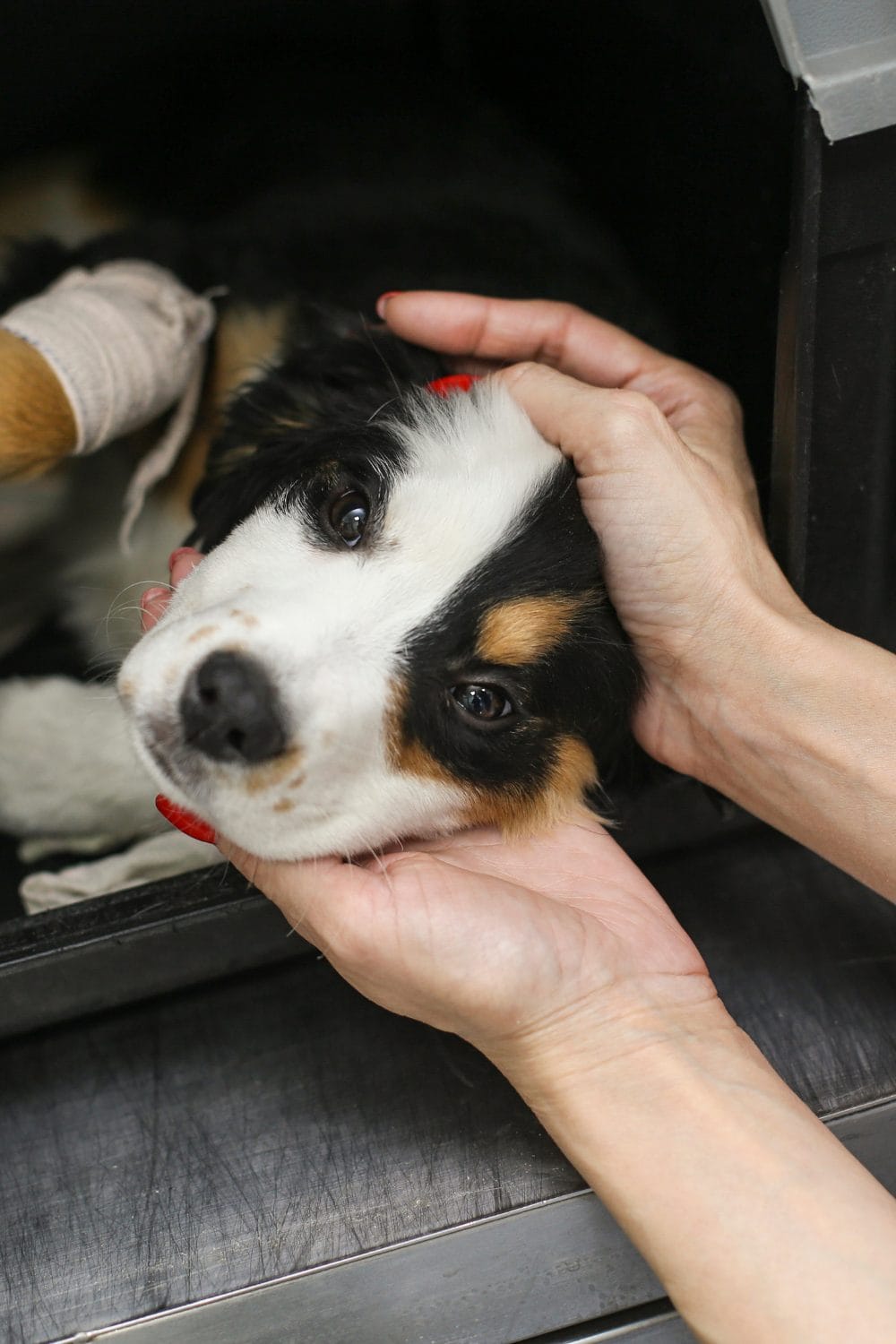
Dogs, often referred to as humans’ best friends, bring joy, love, and companionship to countless households.
However, like humans, dogs can also experience allergies that disrupt their comfort and overall well-being.
dogs & their allergies manifest in various ways and can range from mild discomfort to severe health issues.
Understanding the causes, signs, and preventive measures can help pet owners ensure their furry friends lead a happy and healthy life.
This comprehensive guide explores the history and significance of understanding dog allergies, highlights the common signs, and provides actionable advice to prevent and manage these issues effectively.
A Brief History of Dogs and Allergies

Over centuries, as dogs transitioned from wild animals to domesticated companions, their diets and living environments evolved drastically.
Exposure to processed foods, household chemicals, and allergens like pollen and dust has made modern dogs more susceptible to allergies.
Research into canine allergies gained momentum in the 20th century, with veterinary science identifying triggers and developing treatment protocols to alleviate symptoms.
Understanding the evolution of dogs’ lifestyles is crucial in recognizing why allergies are more prevalent today than in the past.
Domesticated environments often expose dogs to allergens they wouldn’t naturally encounter in the wild, increasing their risk of allergic reactions.
The Significance of Addressing Dog Allergies
Addressing allergies in dogs is not merely about alleviating discomfort; it’s about ensuring their long-term health and quality of life.
Untreated allergies can lead to secondary infections, behavioral issues, and chronic conditions that significantly impact a dog’s well-being.
Moreover, managing allergies helps foster a better bond between dogs and their owners, as healthy pets are generally happier and more active companions.
Signs of Allergies in Dogs

Recognizing the signs of allergies is the first step in addressing the issue. Common symptoms include:
- Skin Irritation and Itching: Dogs may scratch excessively or develop red, inflamed skin.
- Ear Infections: Frequent head shaking or ear scratching can indicate allergies.
- Sneezing and Runny Nose: Respiratory symptoms may arise due to airborne allergens.
- Digestive Issues: Vomiting, diarrhea, or bloating can be signs of food allergies.
- Paw Licking or Chewing: Allergic reactions often manifest as irritation in the paws.
- Hair Loss: Persistent scratching can lead to bald spots or thinning fur.
If your dog exhibits these symptoms, it’s essential to identify the underlying cause and take appropriate action.
Common Causes of Allergies in Dogs
- Environmental Allergens: Pollen, mold, dust mites, and grass are common culprits.
- Food Allergies: Ingredients like beef, chicken, dairy, soy, and wheat can trigger reactions.
- Flea Allergies: Flea saliva is a potent allergen for many dogs.
- Chemical Sensitivities: Shampoos, cleaning products, and perfumes may irritate sensitive dogs.
How to Prevent Dog Allergies?

Preventing allergies in dogs is not only about avoiding discomfort but also ensuring their overall well-being.
By adopting proactive measures, you can significantly reduce your dog’s exposure to allergens and minimize the risk of allergic reactions. Here’s an in-depth look at some effective strategies:
Maintain a Clean and Allergen-Free Environment
Keeping your home clean is essential to minimize your dog’s exposure to potential allergens like dust, pollen, and mold.
- Vacuum Regularly: Use a vacuum with a HEPA filter to clean carpets, rugs, and upholstered furniture, as these can trap allergens.
- Clean Bedding Weekly: Wash your dog’s bedding in hot water to eliminate allergens, fleas, and dust mites.
- Utilize Air Purifiers: Invest in high-quality air purifiers to filter out airborne allergens, ensuring your home has clean, allergen-free air.
Provide a Nutritionally Balanced Diet
A healthy diet can strengthen your dog’s immune system and reduce the likelihood of allergies.
- Opt for Hypoallergenic Dog Food: Choose high-quality, hypoallergenic options that are free from common allergens like wheat, soy, and artificial additives.
- Introduce Foods Gradually: When adding new items to your dog’s diet, do so slowly to monitor for any signs of food sensitivities or allergies.
- Incorporate Omega-3 Fatty Acids: Supplementing with omega-3s can help improve your dog’s skin barrier, reduce inflammation, and promote a shiny coat.
Implement Effective Flea Control Measures
Flea bites are a common cause of allergic reactions in dogs, making flea prevention a priority.
- Use Veterinary-Recommended Products: Regularly apply flea preventatives prescribed by your veterinarian to protect your dog.
- Inspect for Fleas: After outdoor activities, check your dog’s fur and skin for any signs of fleas.
- Maintain a Clean Living Space: Wash bedding and vacuum areas where your dog frequently relaxes to prevent flea infestations.

Focus on Regular Bathing and Grooming
Proper grooming can remove allergens from your dog’s coat and keep their skin healthy.
- Use Hypoallergenic Shampoos: Bathe your dog with mild, hypoallergenic shampoos to soothe irritated skin and wash away allergens.
- Brush Regularly: Frequent brushing removes loose hair, dirt, and pollen while preventing matting and promoting healthy circulation.
Minimize Outdoor Exposure During Allergy Seasons
Certain times of the year can exacerbate allergies due to increased pollen levels.
- Avoid Peak Pollen Hours: Schedule walks and outdoor activities during times when pollen counts are lower, such as early mornings or late evenings.
- Clean Your Dog After Walks: Wipe down your dog’s paws, fur, and face with a damp cloth to remove any allergens picked up outside.
Schedule Regular Veterinary Check-Ups
Routine veterinary care plays a crucial role in preventing and managing allergies.
- Health Monitoring: Regular check-ups allow your vet to detect early signs of allergies or other health issues.
- Preventive Care Discussions: Talk to your veterinarian about vaccinations, medications, and other strategies to manage or prevent allergic reactions in your dog.
When to Consult a Vet?

While mild allergies can often be managed at home, there are instances where professional intervention is necessary:
- Persistent Symptoms: If symptoms last more than a few weeks despite preventive measures.
- Severe Reactions: Difficulty breathing, swelling, or severe itching requires immediate attention.
- Secondary Infections: Signs of infection, such as pus, foul odor, or excessive redness.
- Unexplained Symptoms: Any sudden changes in your dog’s behavior or health.
A veterinarian can perform allergy testing to identify specific triggers and recommend targeted treatments, such as antihistamines, corticosteroids, or immunotherapy.
Conclusion
Dog allergies are a common but manageable issue.
By understanding the causes, recognizing the signs, and implementing preventive measures, pet owners can significantly improve their dog’s quality of life.
Regular vet consultations and proactive care go a long way in ensuring your furry companion remains happy and healthy.
Remember, a little attention to detail can prevent discomfort and foster a stronger bond with your dog.
FAQs
Yes, any dog can develop allergies regardless of breed or age, though some breeds are more prone to certain allergies.
Food allergies are relatively common and often manifest as skin irritation or digestive issues. Identifying and avoiding the offending ingredient is key.
Dogs with flea allergies often have intense itching, especially around the tail base, and may develop red, inflamed skin.
Some human antihistamines, like Benadryl, can be safe for dogs, but always consult your vet for the correct dosage and suitability.
Veterinarians can perform blood tests, skin tests, or elimination diets to identify the specific allergens affecting your dog.
- Best Shampoo for Sensitive Skin Dog Grooming: 2026 Guide - February 12, 2026
- 40+ Aesthetic Names for White Dogs (2026 Unique & Rare List) - February 6, 2026
- 50+ Cool Snake Names for 2026: Expert-Picked & Rare Ideas - January 29, 2026


GIPHY App Key not set. Please check settings